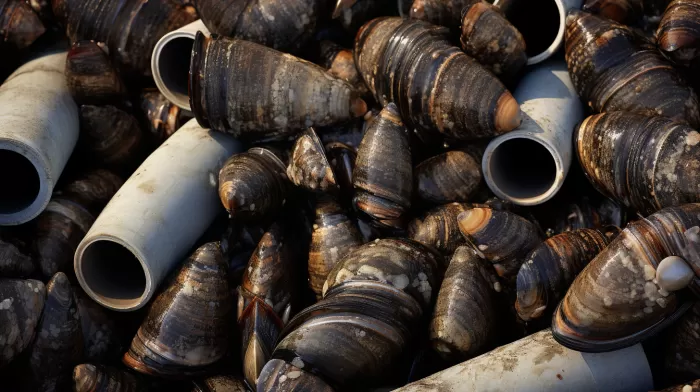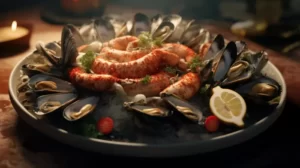If you enjoy munching on corn chips, it’s important to know that you’re likely consuming genetically modified (GMO) corn. Besides the ongoing debate surrounding the health effects of consuming GMOs, there’s another negative impact of GMO corn that you may not be aware of: its role in the massive growth of zebra mussels in the Great Lakes.
Zebra Mussels: Small Creatures, Big Problems
Zebra mussels are an invasive species causing significant issues in the Great Lakes. These small shellfish are exceptionally good at detoxifying their bodies and appear to be resistant to the poisonous chemicals produced by blue-green algae and found in pesticides. Unfortunately, these same chemicals are pushing other mussel species, such as unio, to the brink of extinction in these waters.
Zebra mussels thrive in large colonies in the Great Lakes and often attach themselves to pipes that carry water from the lakes into factories and other industries along the shores. They frequently cause blockages in these pipes, leading to costly cleanups and repairs[^1^]. In European lakes, zebra mussels attach themselves to other mussel species, suffocating them and preventing them from eating, ultimately causing their demise[^2^].
Pesticides: The Other Culprit
Another key player in this ecological crisis is the pesticide Roundup, produced by Monsanto[^3^]. This chemical is heavily sprayed on GMO corn crops and negatively impacts many mussel species. The exception: zebra mussels. Researchers believe that zebra mussels are resistant to Roundup’s toxic effects.
Scientists have discovered that Roundup inhibits the unio mussel’s ability to combat toxins. The enzymes that would typically help the mussel secrete harmful substances become blocked, preventing the mussel from removing the poison from its body. This stress potentially reduces the species’ long-term viability[^4^]. Conversely, zebra mussels intensify their detoxification mechanisms, allowing them to secrete the toxin without experiencing stress or negative effects[^5^].
Invasive Species and the Ecosystem
Invasive species like zebra mussels can have far-reaching impacts on ecosystems. They often outcompete native species for food and resources, leading to declines in native wildlife and altering the delicate balance of those ecosystems[^6^]. As zebra mussels take over the Great Lakes, potentially wiping out other mussel species, the impact on the lakes’ ecosystem could be severe.
The issue of zebra mussels overwhelming the Great Lakes is another reminder of the importance of protecting and preserving our ecosystems. It’s crucial to understand the impacts of our actions, from the food we eat to the products we use. By being mindful of our consumption and the potentially harmful effects it could have on our environment, we can help support the health and well-being of the planet and ourselves.
What Can You Do?
You’re probably wondering what you can do to help protect the Great Lakes and other ecosystems affected by the influx of zebra mussels. Here are a few ideas:
- Choose Organic Corn Products: By purchasing organic corn snacks and other products, you’ll be supporting farming practices that avoid the use of harmful pesticides like Roundup. This small change in your shopping habits can make a significant difference for the environment[^7^].
- Support Invasive Species Control Efforts: Learn about ongoing efforts to control and eliminate invasive species, such as zebra mussels, in the Great Lakes and other impacted areas. Support organizations dedicated to these efforts, either by donating or volunteering your time[^8^].
-
Spread Awareness: Educate your friends and family about the issues of invasive species and the negative impacts of GMO corn on our ecosystems. By raising awareness and sharing information, we can encourage others to make better choices to protect our planet.
In conclusion, it’s essential to be aware of the impact our consumption has on the environment. By taking steps to avoid products that contribute to the growth of invasive species, we can help protect the delicate balance of our planet’s ecosystems. So, the next time you reach for a corn chip snack, consider the ripple effects it may have on the world around you – and choose wisely.



